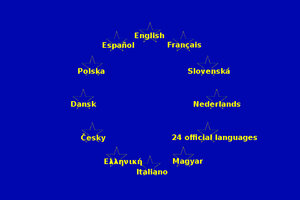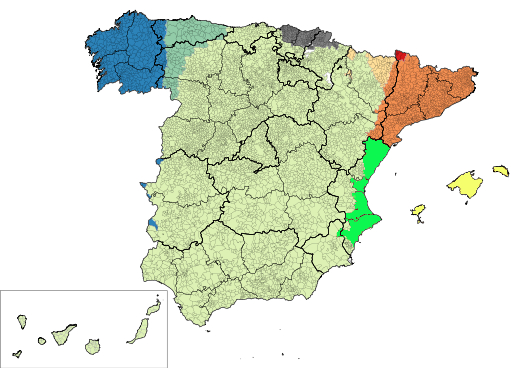EU: Equal rights for Valenciano!
The EU and linguistic minorities
June 14, 2025
I had to read twice: The European Parliament reproaches Sánchez that Valenciano has the same status and the same right as Catalan to be an official language. (headline on eldebate.com)
When I first read this headline, I understood: Valenciano must have the same rights as Spanish and thought, what has happened now? It is self-evident, and once again there is confusion. Languages have no rights, only humans have rights - to use their own language. Moreover, the government of the Comunidad Valenciana seems to discriminate less against the Spanish-speaking majority than the governments in the other regions with regional languages (Catalonia, the Basque Country, Galicia and the Balearic Islands).1
Then I realised it was about equal rights for Valenciano and Catalan! What was it about?
Spanish Prime Minister Pedro Sánchez has an extremely narrow majority in the Spanish parliament, which is partly due to an alliance with the Spanish separatists, particularly Junts. The president of Junts is Carles Puigdemont, whose legal status in Spain is still questionable in the sense that he is being charged for sedition and misuse of public funds. This is understandably an extremely complicated situation for Sánchez, which also involves compromises regarding Catalan autonomy and the distribution of tax revenues.
The issue here is that part of these compromises concerned the application for Catalan to become an official language of the EU, which Sánchez was supposed to apply for. After the 27 EU member states postponed a vote on this application for legal, financial and political reasons, the European Council Research Service (EPRS) has expressed its surprise. Eldebate.com comments: ‘This report reveals Sánchez's PSOE's attempts to make Catalan the official language of the European Union alongside Basque and Galician, ahead of other ‘official languages’, with particular reference to Valenciano in this regard.’
The commentary further notes: ‘The Working Group on Languages and Citizens and Language Services of the Bureau of the European Parliament states that the official language of the Valencian Community “has the same official status in Spain” as Catalan, “both in the Constitution and in their respective Statutes of Autonomy”.
In other words by law, Valenciano has the same status in the European Union as Catalan does (i.e. an official language) or differently put,the language of the Catalan Autonomous Community is no more relevant than eight other languages that are equally official in their respective countries.
The EPRS report identifies a number of languages that are also official languages in European Union countries, refuting the Catalan supremacist delusion. For example, it states that Turkish in Cyprus, Luxembourgish in Luxembourg, Faroese and Greenlandic in Denmark, Frisian and Papiamento in the Netherlands and Aranese and Valenciano in Spain are official languages in their respective states, as are Catalan, Basque and Galician. The Spanish government would therefore like to ‘reward’ these last three languages over the other languages.’
With the term supremacist delusion, the commentary refers to the fact that the Catalan separatists dream of the ‘Países catalanes’, (their Catalan empire), which includes French and Italian regions and, of course, Valencia and the Balearic Islands in Spain. The Balearic languages and Valenciano are downgraded as Catalan dialects.
European official languages
I think the EU should only have one official language - English if you like. It is the official language of the member state Ireland and is spoken worldwide. All other language communities should translate EU texts at their own expense and with their own interpreters. That's not fair? But the world is not a fair place and this proposal would be the closest thing to a fair solution. By the way, English is an official language in India, although there are practically no native English-speaking Indians. It is an official language along with 22 other indigenous languages, although Indians have not forgotten their former colonial dependence. For them, it simply makes sense. When it comes to communication, language is just a tool.
1. Who reads EU texts in the original? Hardly the ‘normal citizen’. Only those who have to deal with them professionally, e.g. politicians, journalists, civil servants.
2. The EU's bureaucracy is already expensive enough. If each linguistic group bears the costs of translation itself, people will consider whether every text really needs to be translated.
3. The salary level in each country is also different. EU civil servants are paid the same, regardless of the wage level in their country of origin.2 That's not fair either, is it?
Footnotes
1 Un estudio apunta a que la Comunidad Valenciana es la autonomía bilingüe que menos excluye al castellano
2 chatgpt.com: ‘EU civil servants receive a standardised salary that does not depend on the salary level in their country of origin’ Starting salary for academics: €5,000 gross/month
| | | | Click here to subscribe or cancel your subscription |
Myths and deceptions of Catalan nationalism

Here you'll find the translation
Languages in Spain
Spanish, Basque, Catalan, Mallorquin, Valenciano etc.
The strategy of recatalanization
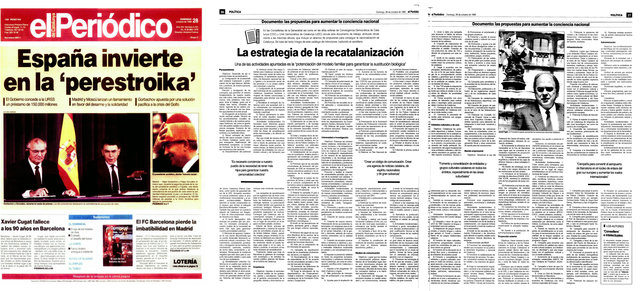 1980 the Spanish journal "El Periodico" published a secret document about the strategy of the Catalan government. It shows in a frightening way the actual spiritual world of the separatist leaders.
1980 the Spanish journal "El Periodico" published a secret document about the strategy of the Catalan government. It shows in a frightening way the actual spiritual world of the separatist leaders.Now it is available in english translation.
Pancatalanism
the separatist's imperial claim
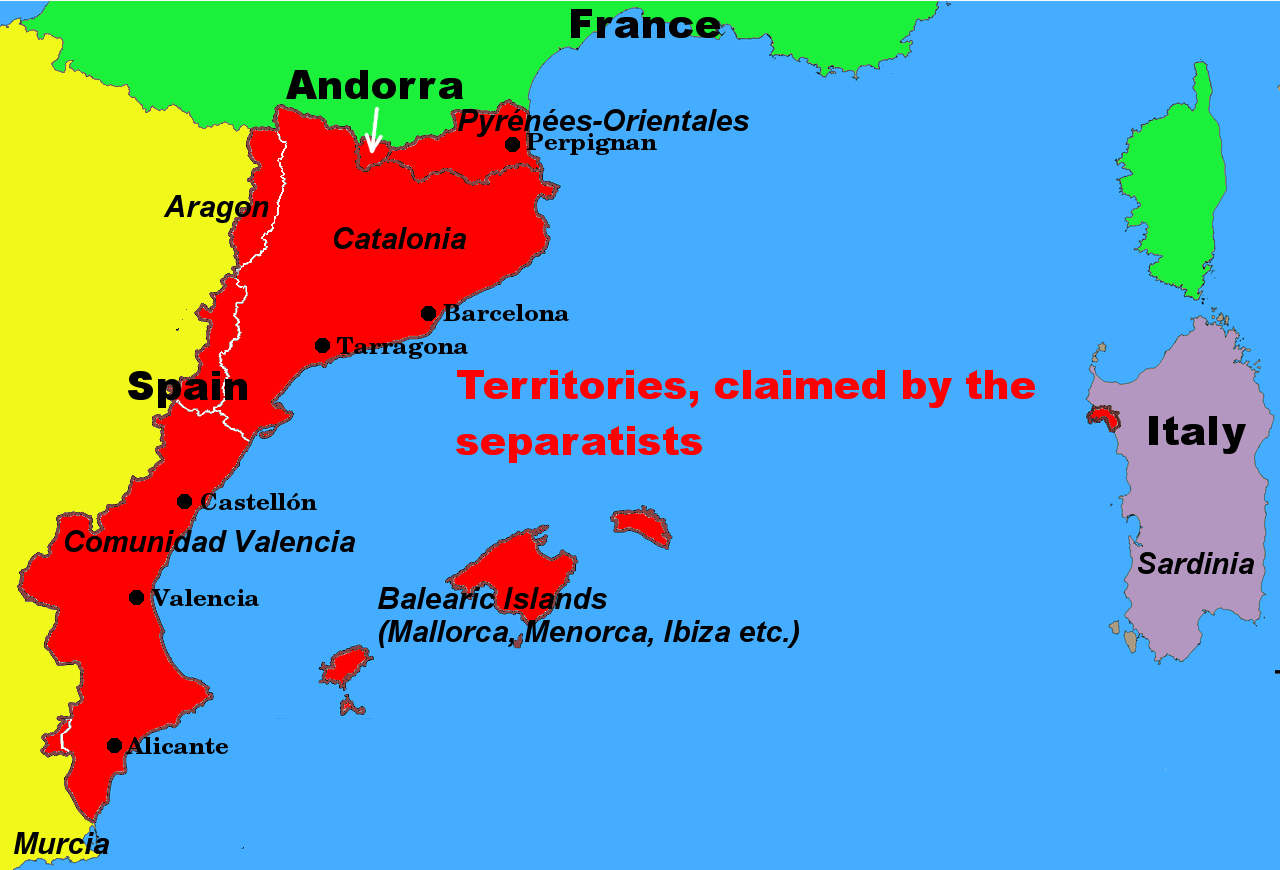 The Catalan government exports the conflict into communities with Catalan population, supporting all efforts of the separatists including financial means to destroy Spain.
The Catalan government exports the conflict into communities with Catalan population, supporting all efforts of the separatists including financial means to destroy Spain. An important tool is the establishment of a language dictatorship that is not afraid to use the same means as Franco.
Separatist indoctrination

Click here to read the study
Language imposition and democracy
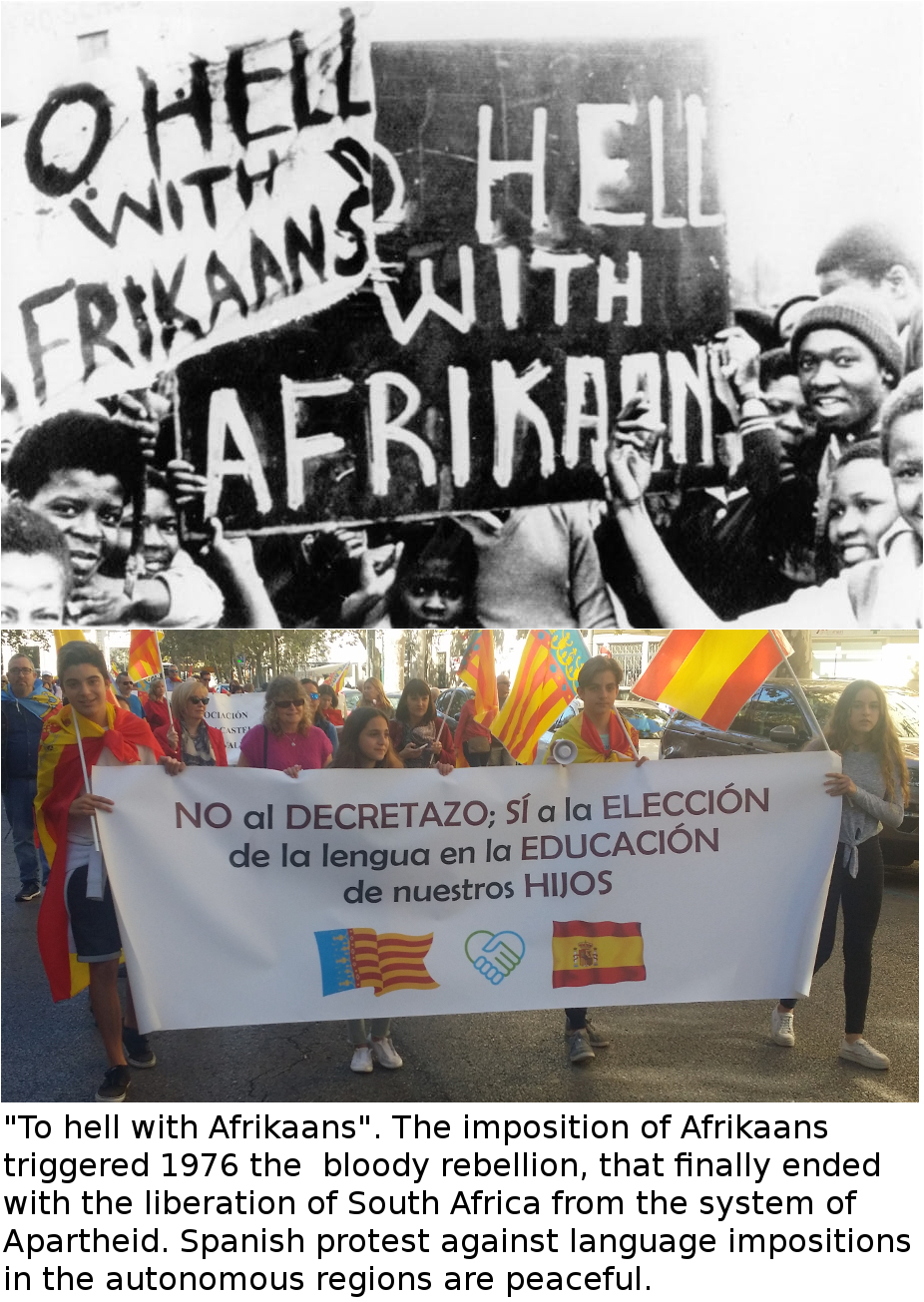
An essay in 6 parts on the potentially violent effect of language imposition containing contributions from South Africa, Catalonia, Ukraine and France.
go to part 1 SticSti
Publications
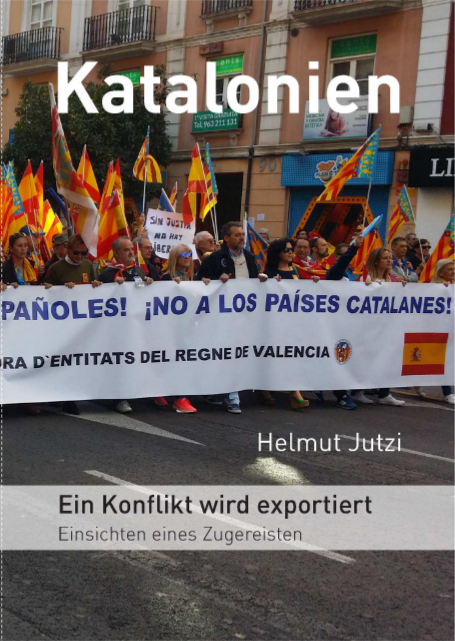 The title says: "Catalonia, a conflict is exported. Insights of a migrant"
The title says: "Catalonia, a conflict is exported. Insights of a migrant"Sorry, up to now, this book is only available in German. However, drop us a line, if you are interested to learn more Contact.
